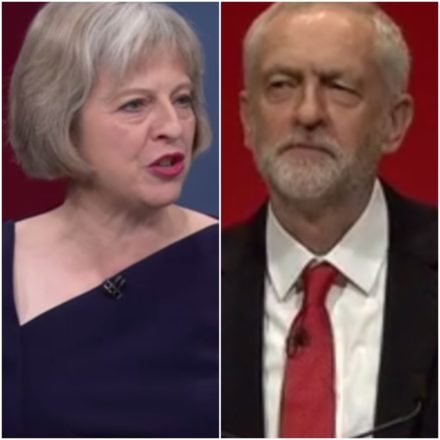
It began with an issue few will have heard of but Jeremy Corbyn’s tactics today were more familiar: to not provide any let off for Theresa May on a week which has seen her Government come under yet more pressure over Brexit after the leak of a memo describing the lack of a serious plan.
Corbyn opened the weekly joust with a question on the plight of the Chagos islanders, who may not receive the right to return to their homeland, before moving to the biggest news story of the year – that shock EU referendum result and its aftermath.
He focused on the admission yesterday from Boris Johnson who suggested that the UK would leave the customs union because of Brexit – May could provide no answer apart from the generic response we have heard time and time again: the Tories have a “plan”. I’m not sure if they think that intoning those words day after day make a plan more likely to magically appear but that certainly seems to be the prime minister’s strategy.
The devil was in the detail for Corbyn and he repeatedly pressed May on the memo, particularly the mention of civil services numbers. This seemed to hit a nerve. When he asked about the cuts which have left the civil service headcount at its lowest since the war, she could provide no specific answer, talking only about the degree of preparation. Instead, she went on the attack, saying of Labour that “they talk, we act; they posture, we deliver; we’re getting on with the job, he’s not up to the job”.
The use of these rhetorical devices – obviously prepped in advance and shoe-horned in – has become a key feature of May’s performance at PMQs. She is also keen on the rule of three, that every good school student will try to use, when answering questions on the government’s plans for Brexit but it always sounds so clumsy. The repetition of “our plan” will do nothing to reassure the public who worry that trade will be dealt a significant blow by any change to this country’s relationship with the customs union. And her description of travelling across the world to pursue commercial deals as a key aspect of her vision for Brexit Britain seems particularly laughable given the weak performance of a recent trade mission to India.
May’s moment of greatest impact came at the end of the exchange when she described Corbyn as “incapable of leading” and painted a picture of a Labour Party divided over Brexit strategy and unclear on its future. However, this came after the Opposition leader described the failings of key government ministers piece by agonising piece.
Corbyn’s criticisms of Johnson, Priti Patel and Philip Hammond amongst others – with specific detailing of their weaknesses – were more successful than May’s own generic, weary criticisms of him. We’ve been hearing those for too long for them to be significant.
What was most striking about PMQs was the punchy nature of the exchanges. Amid the sound and fury there are signs May is repeating some of the mistakes of her predecessor at Number 10 – revelling in the attack but weak when it comes to detail.




More from LabourList
SPONSORED: ‘Industrial hemp and the challenge of turning Labour’s priorities into practice’
‘A day is a long time in politics, so we need ‘action this day’’
Strong support for child social media ban among Labour members, poll reveals